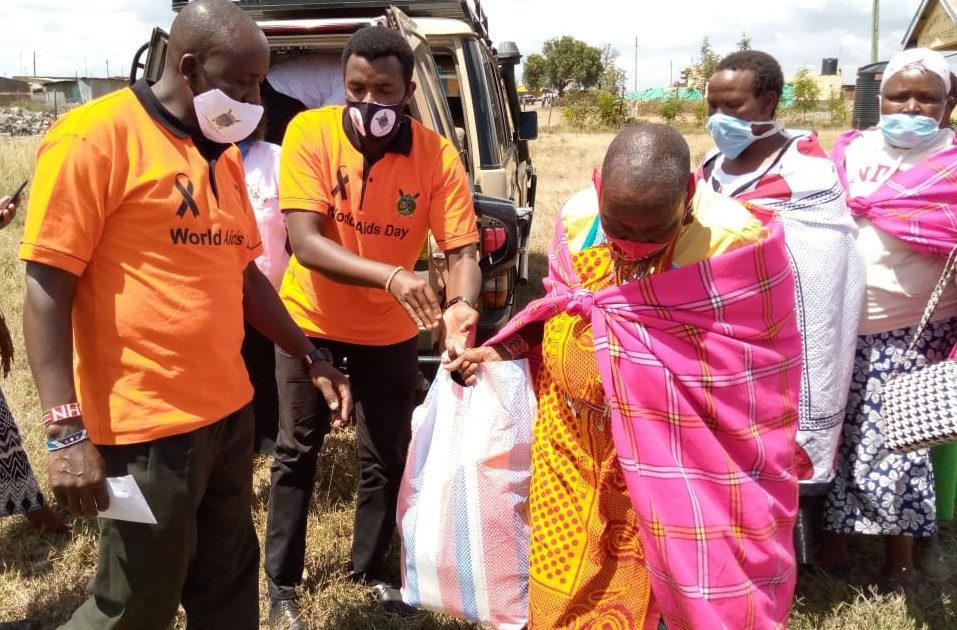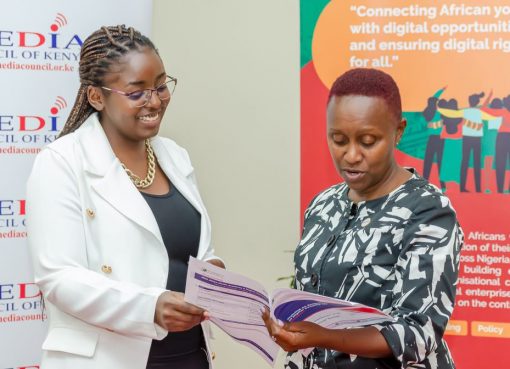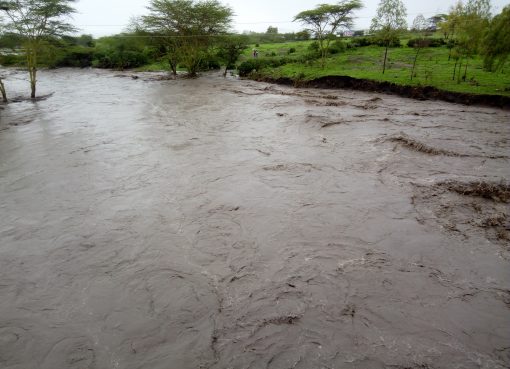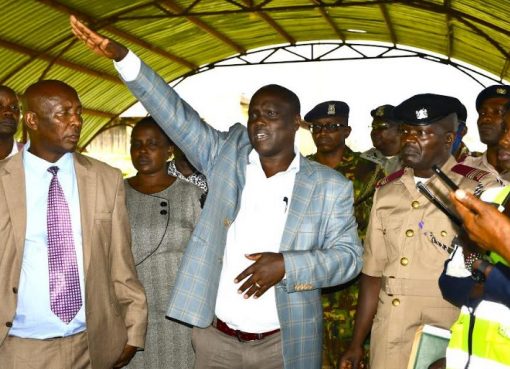It’s estimated about 20,000 people in Narok county are living with HIV/Aids but only 9,000 (about 46 per cent) are on Anti-Retroviral (ARV) drugs which is below the target to have 90 per cent of those infected on ARVs.
The county Aids and Sexually Transmitted Infections (STIs) Programme Coordinator Mr. Dickson Kigwenai Nenkuseyo said his department was working round the clock to ensure the remaining 11,000 (54 per cent) are put on life-saving drugs which are provided free of charge in all government facilities in the county.
He was speaking in Sekenani Tuesday when he presented what he called Maisha packs to vulnerable groups in the area as part of the events to mark the World HIV /Aids Day. “We decided to celebrate this year`s World HIV/Aids Day differently by giving maisha packs to vulnerable people around the county,” Kigwenai said. The packs included face masks, rice, cooking fat, maize four, beans and bar soaps to help them at this time of Coronavirus pandemic.
Kigwenai noted with concern that most of those seeking HIV/Aids testing and treatment were women and urged men to come out and be tested.
“When we have a section of the population that is not seeking medical care, then they become spreaders of the virus either consciously or unconsciously,” he said.
Kigwenai said although the prevalence of HIV/AIDS in Narok County has dropped from 5.4 per cent in 2014 to 5.0 percent this year, their target was to further reduce the prevalence by more sensitization and awareness creation about HIV/Aids. “We have a worrying trend of infections increasing among those between ages 20 to 30 and40 and above and we need to stem this,” he said.
He advised Narok residents to go for HIV testing in order to know their status. “Let all of us come forward and be tested and if found positive of HIV/ AIDS, it’s not the end as we will counsel you and give your life prolonging drugs,” he explained.
He also advised the residents to shun traditional myths about HIV/ AIDS and stop stigmatizing people living with the disease as doing so made many shy away from going for tests and ARVs which could help save their lives.
The coordinator said the onset of the Coronavirus pandemic has brought some drawbacks that almost eroded the gains made in fighting the scourge.
“People used to come to hospital and many of them are no longer doing that. We also used to do outreaches or community HIV/ Aids testing but this has since stopped due to the Coronavirus pandemic but we call upon residents to seek Aids testing in any of our over 200 health facilities in the county,” he said.
Kigwenai also advised people living with HIV/ AIDS to live positively, embrace proper diet, exercise and use protection when having sex to avoid infecting and being re-infected with the virus. “This will also help prevent opportunistic infections which HIV/ AIDS positive people are prone to,” He said.
About 1.5million people in Kenya are living with HIV/Aids of which 75 per cent are on ARVs.
By Mabel Keya-Shikuku





